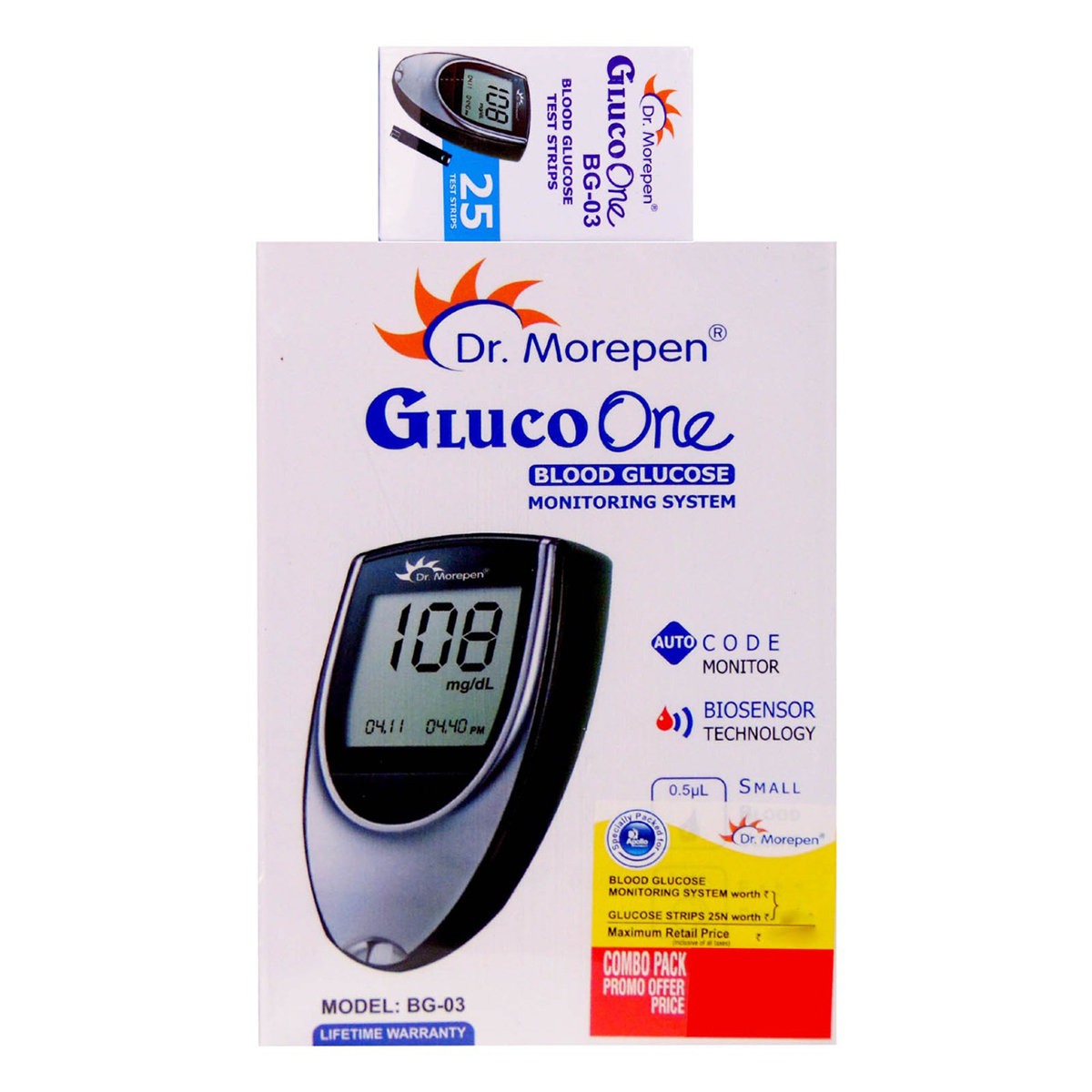- Home
- Health Devices
Glucometers & Test Strips
Glucometers & Test Strips
- Total Items (80)

FreeStyle Libre Sensor - Flash Glucose Monitoring System, 1 Count
₹4483.70
MRP ₹4670.50
4% off
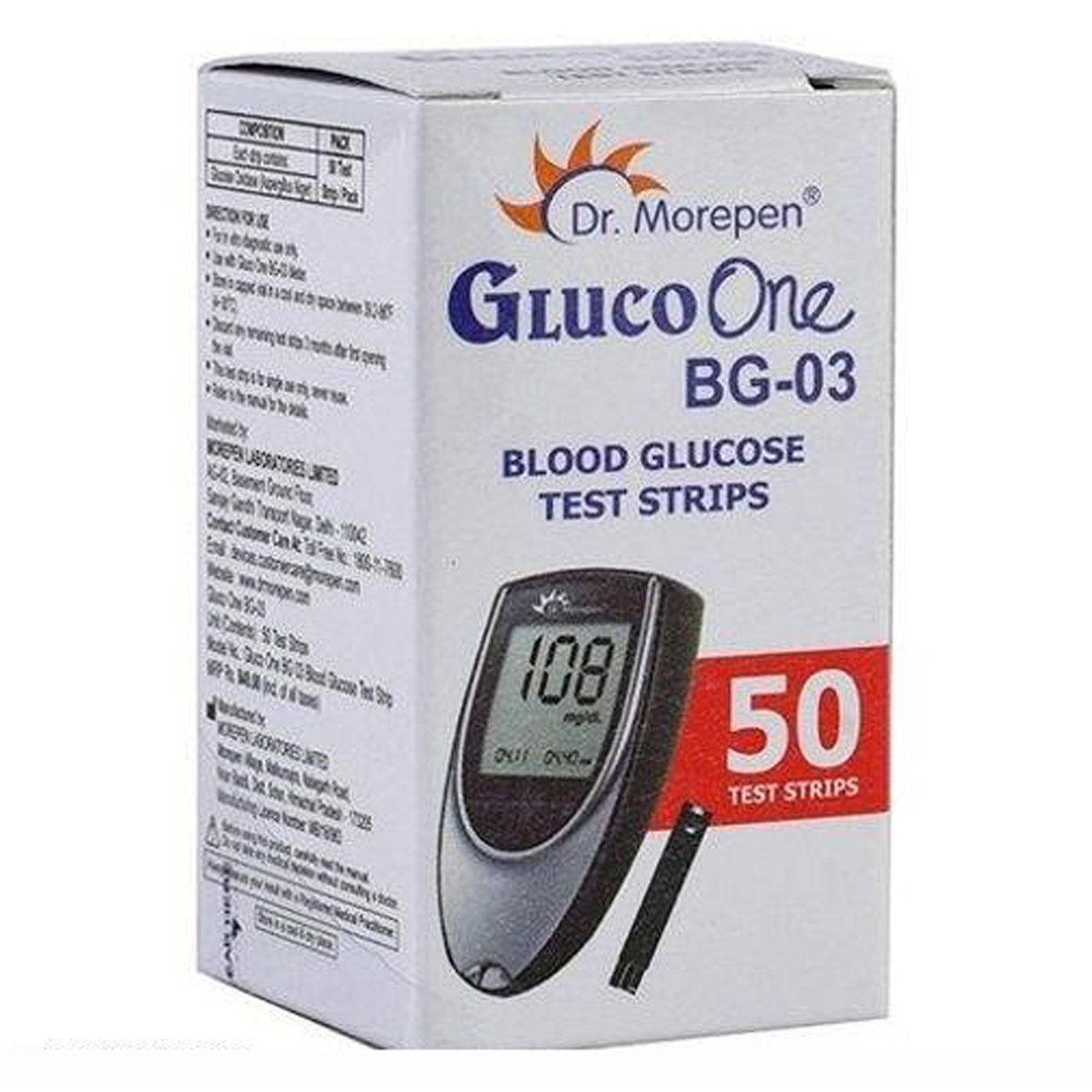
Dr. Morepen Gluco One BG-03 Blood Glucose Test Strips, 50 Count
₹556.90
MRP ₹795.50
30% off

Apollo Pharmacy Blood Glucose Test Strips, 50 Count
₹674.10
MRP ₹749
10% off
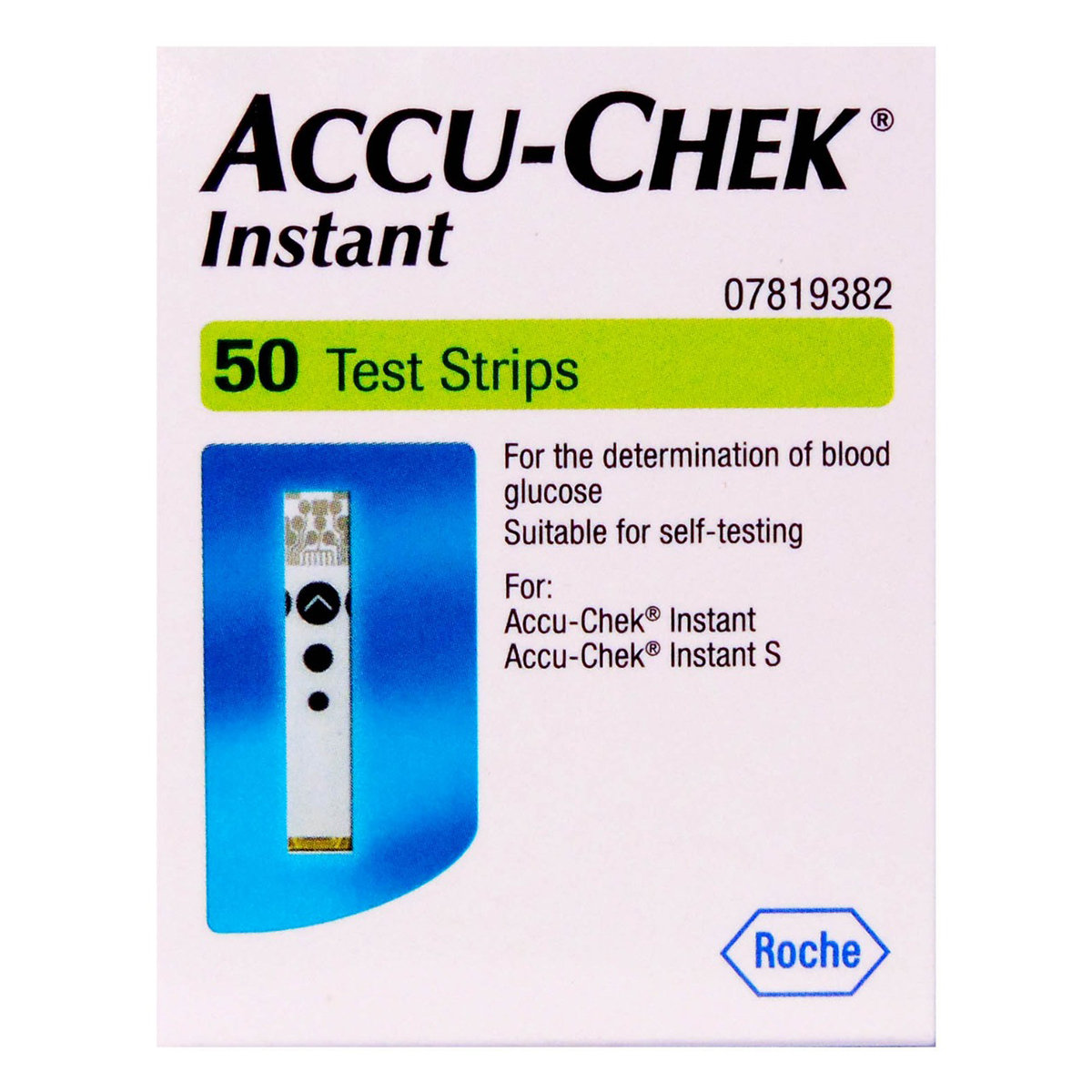
Accu-Chek Instant Test Strips, 50 Count
₹981.60
MRP ₹1115.50
12% off
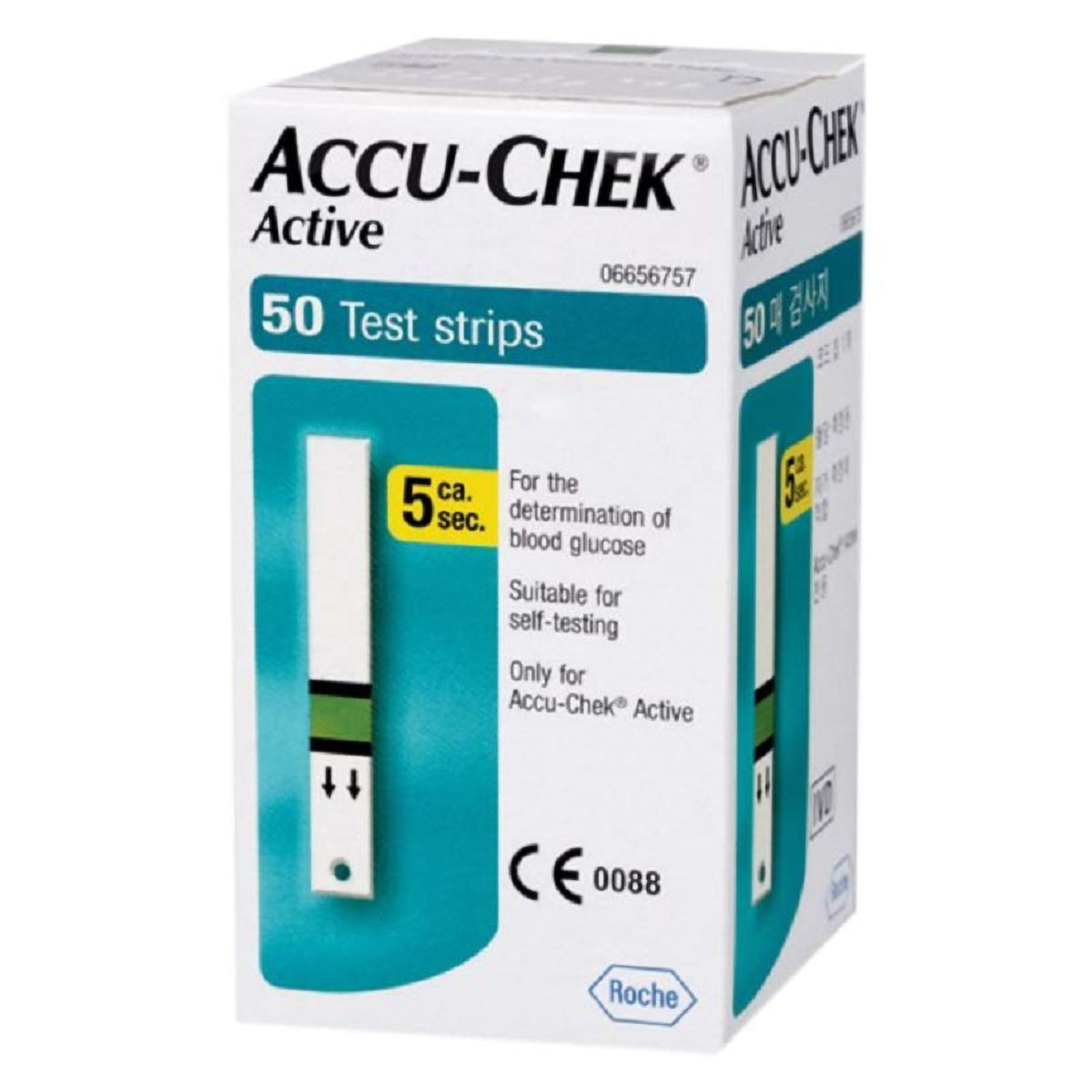
Accu-Chek Active Test Strips, 50 Count
₹992.80
MRP ₹1115.50
11% off

Accu-Chek Active Test Strips, 100 Count
₹1730.50
MRP ₹1966.50
12% off

Contour Plus Blood Glucose Test Strips, 50 Count
₹969.30
MRP ₹1077
10% off
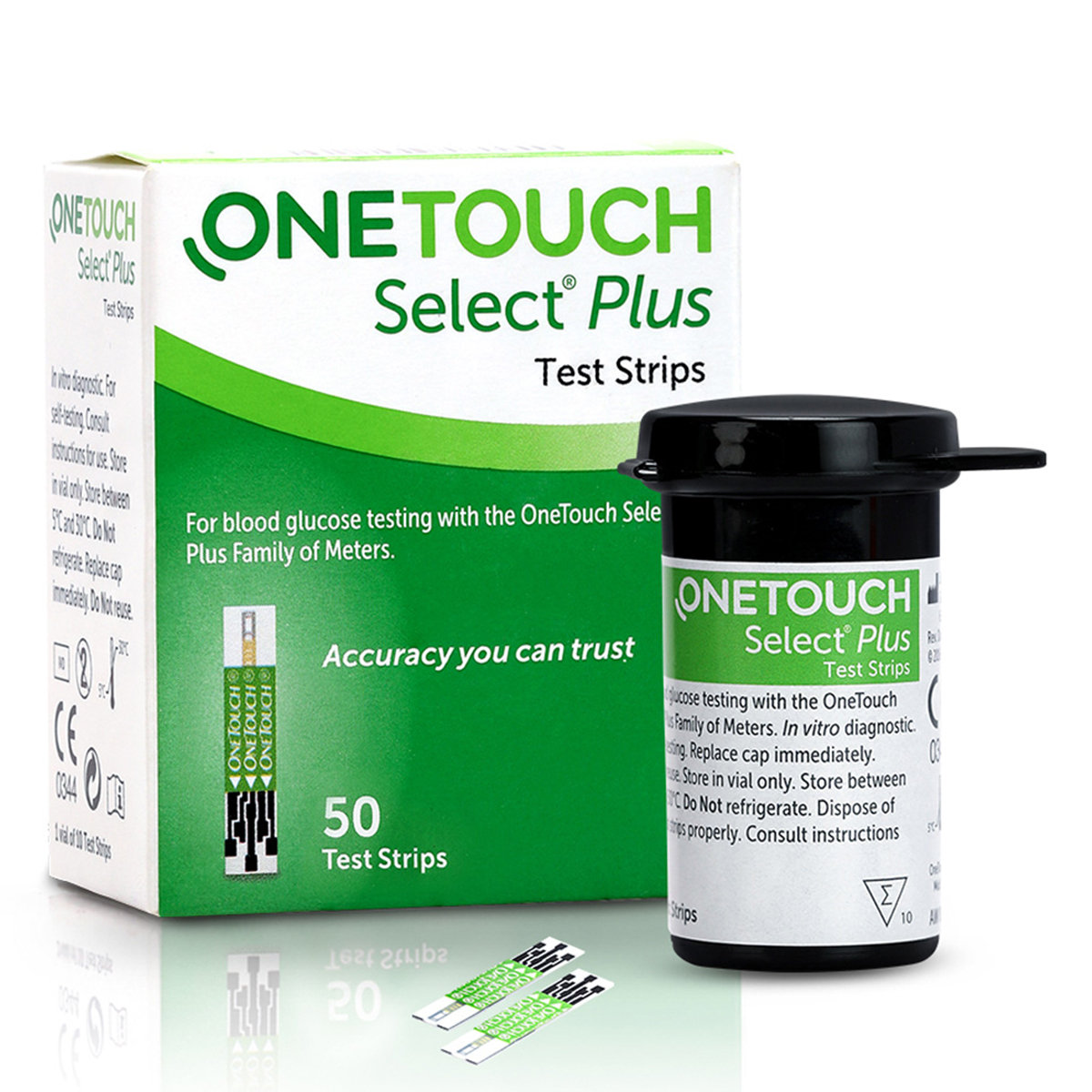
OneTouch Select Plus Test Strips, 50 Count
₹1030.40
MRP ₹1120
8% off
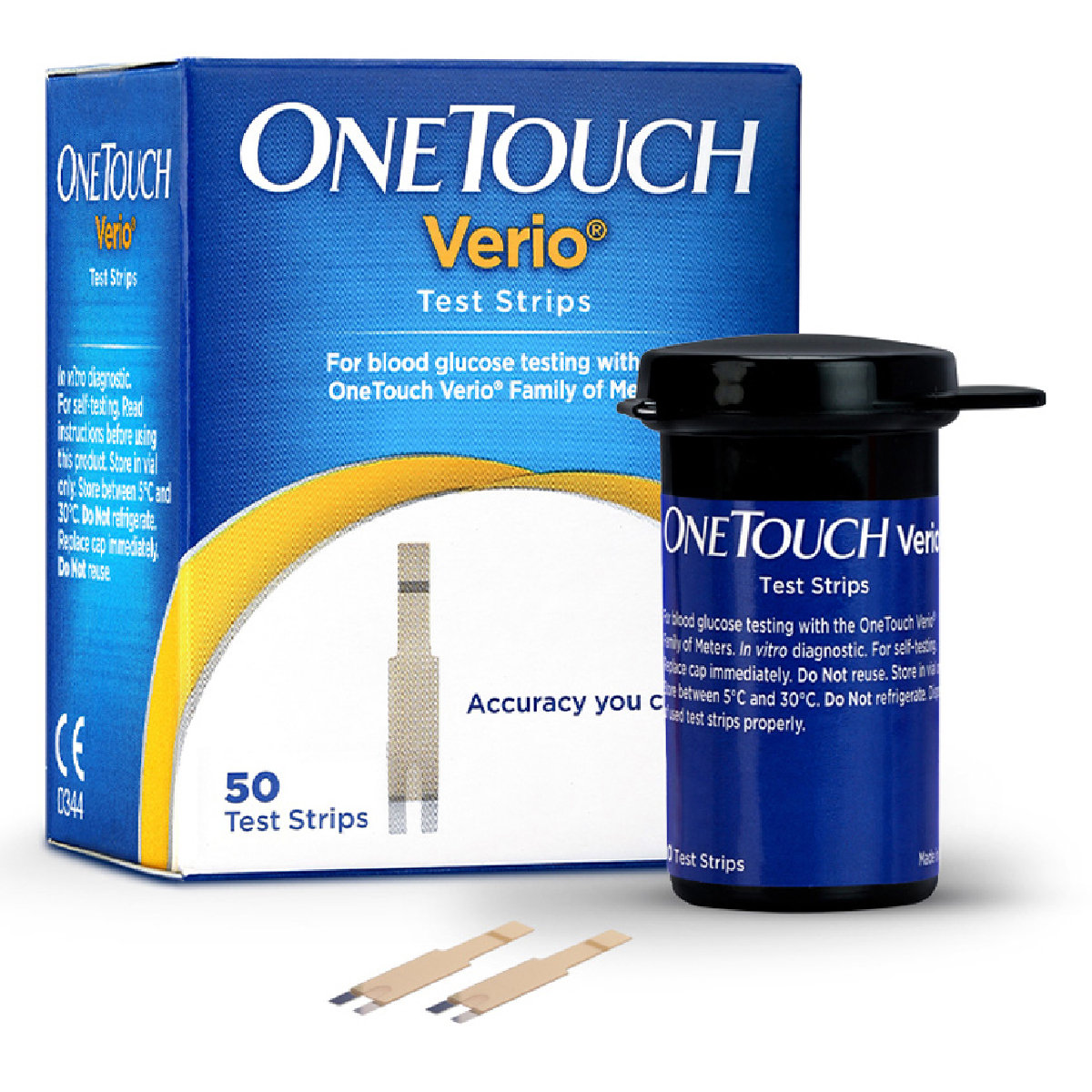
OneTouch Verio Test Strips, 50 Count
₹1108.70
MRP ₹1167
5% off
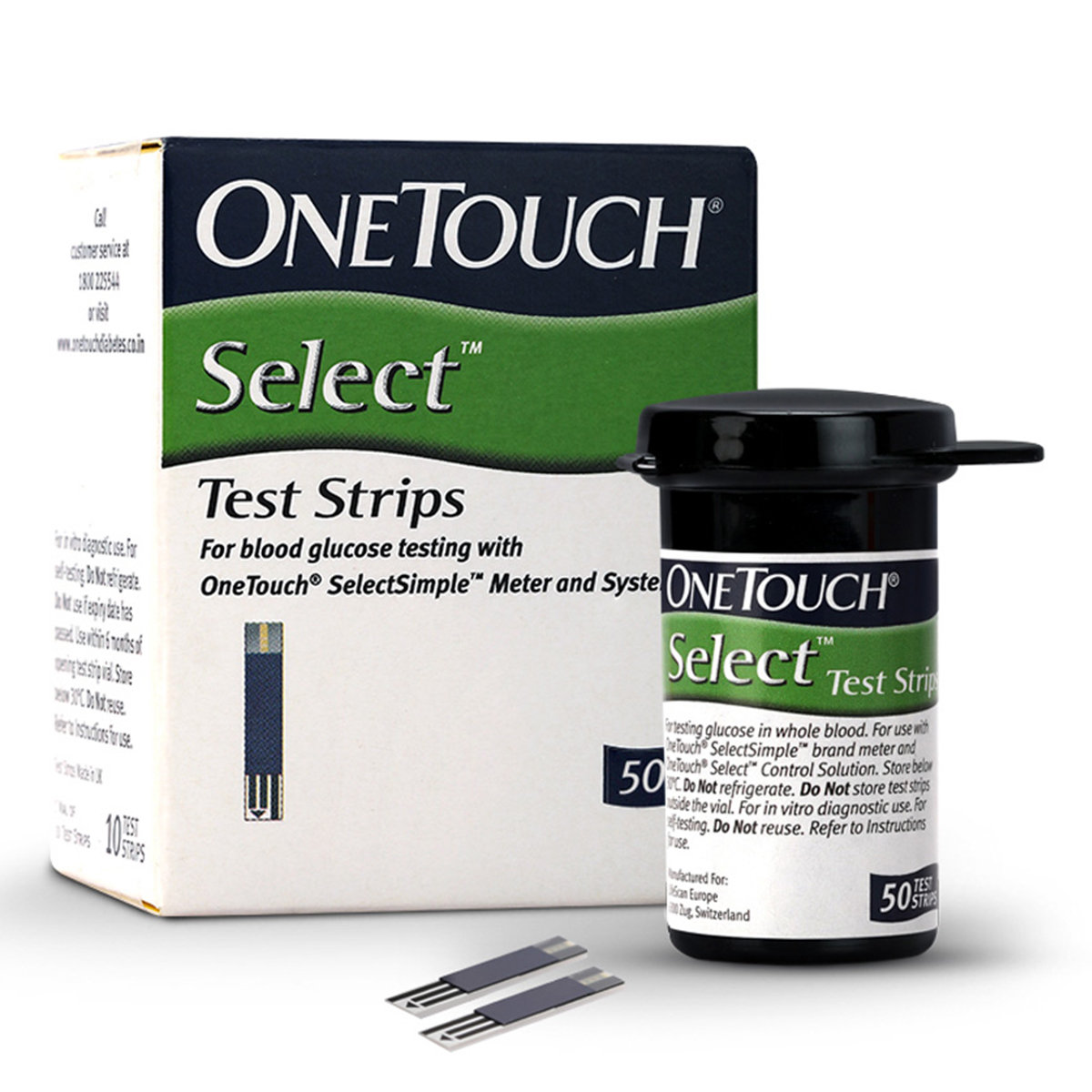
OneTouch Select Test Strips, 50 Count
₹1152.60
MRP ₹1214
5% off

Accu-Chek Active Blood Glucose Monitoring System With 10 Free Test Strips, 1 Kit
₹955.40
MRP ₹1124
15% off
Minimum Order Qty: 2

Dr. Morepen Gluco One BG-03 Blood Glucose Test Strips, 25 Count
₹420.70
MRP ₹467.50
10% off
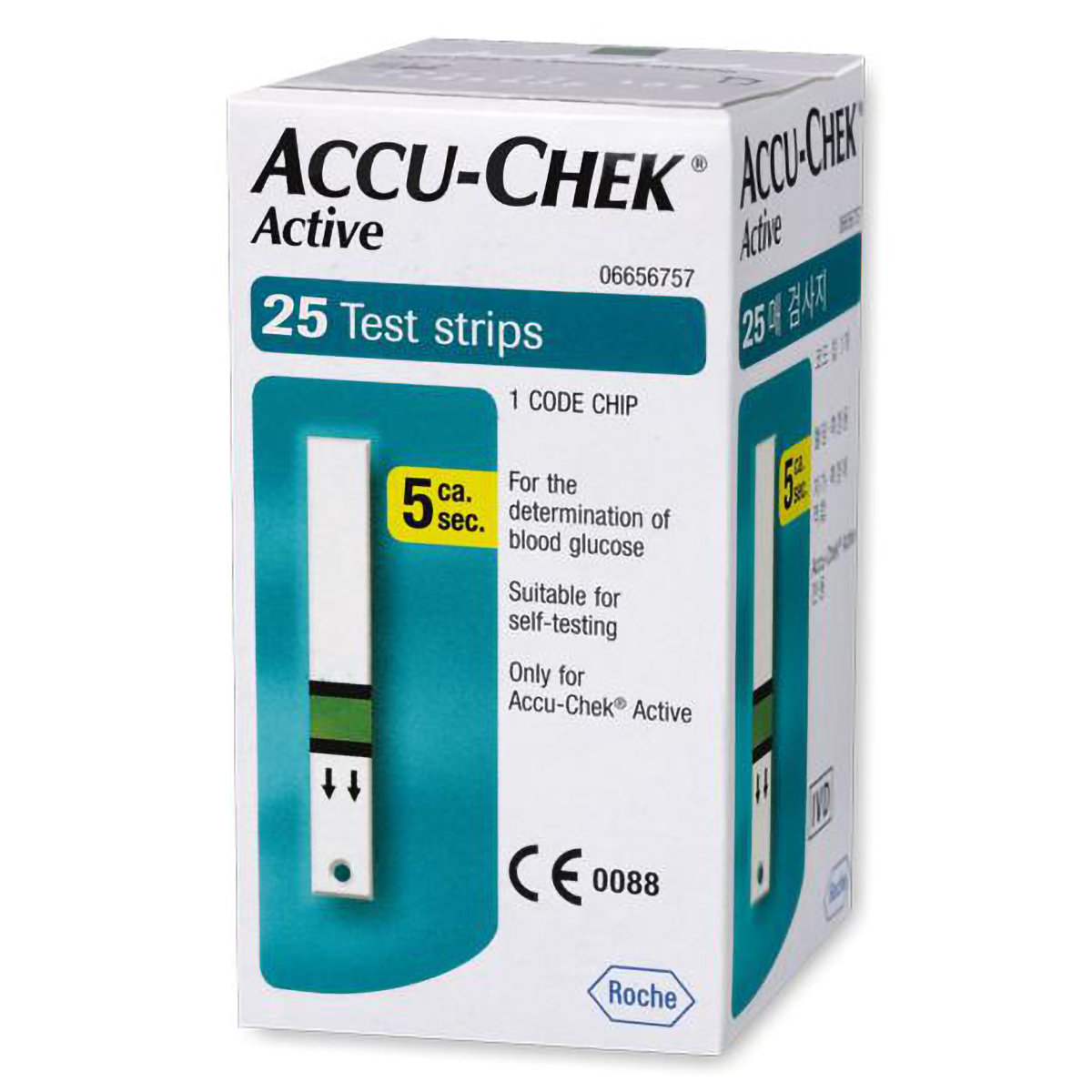
Accu-Chek Active Test Strips, 25 count
₹692.30
MRP ₹745
7% off
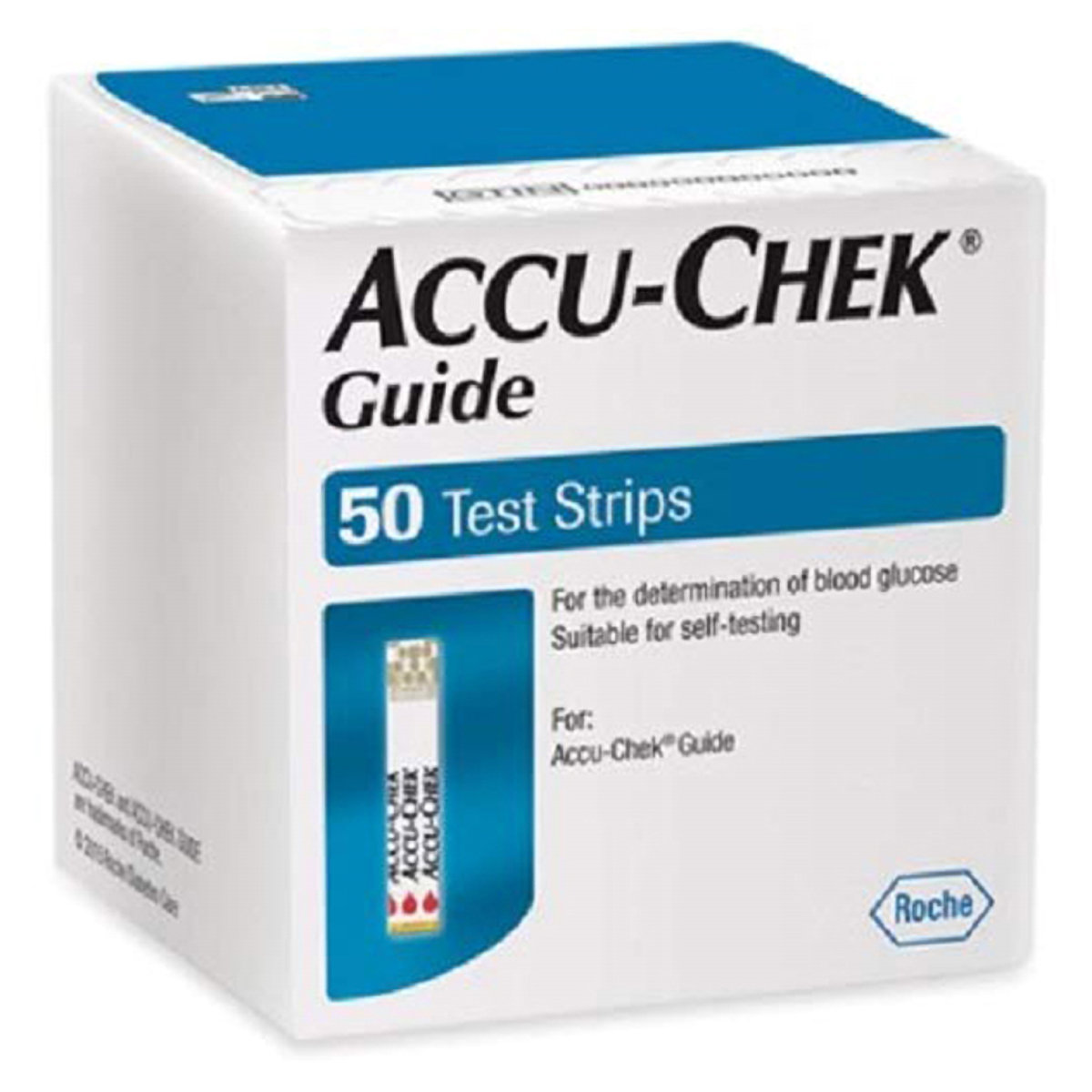
Accu-Chek Guide Blood Glucose Test Strips, 50 Count
₹1326.40
MRP ₹1396.50
5% off
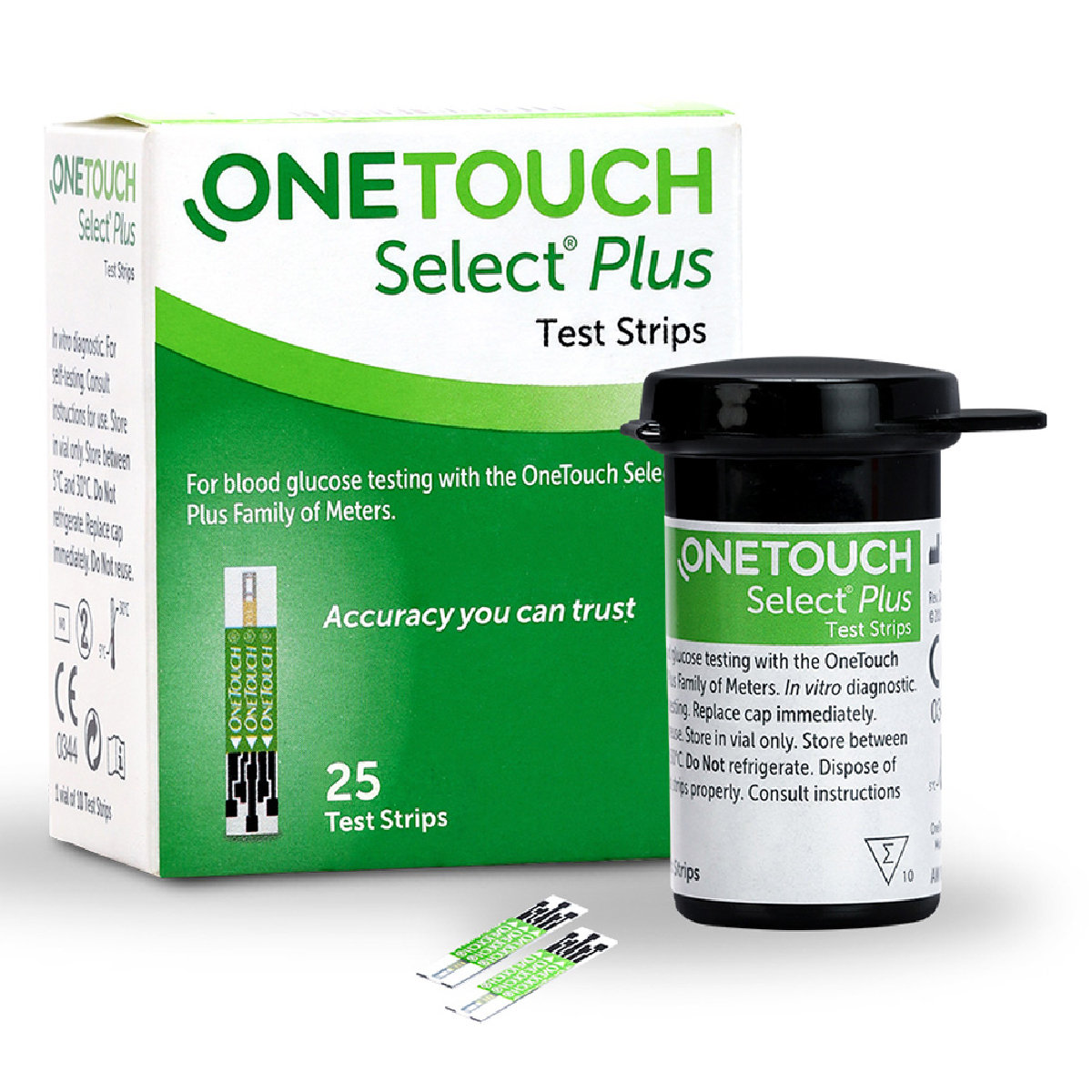
OneTouch Select Plus Test Strips, 25 Count
₹607.20
MRP ₹632.50
4% off

Freestyle Libre Reader - Flash Glucose Monitoring System, 1 Count
₹4871.20
MRP ₹5413
10% off
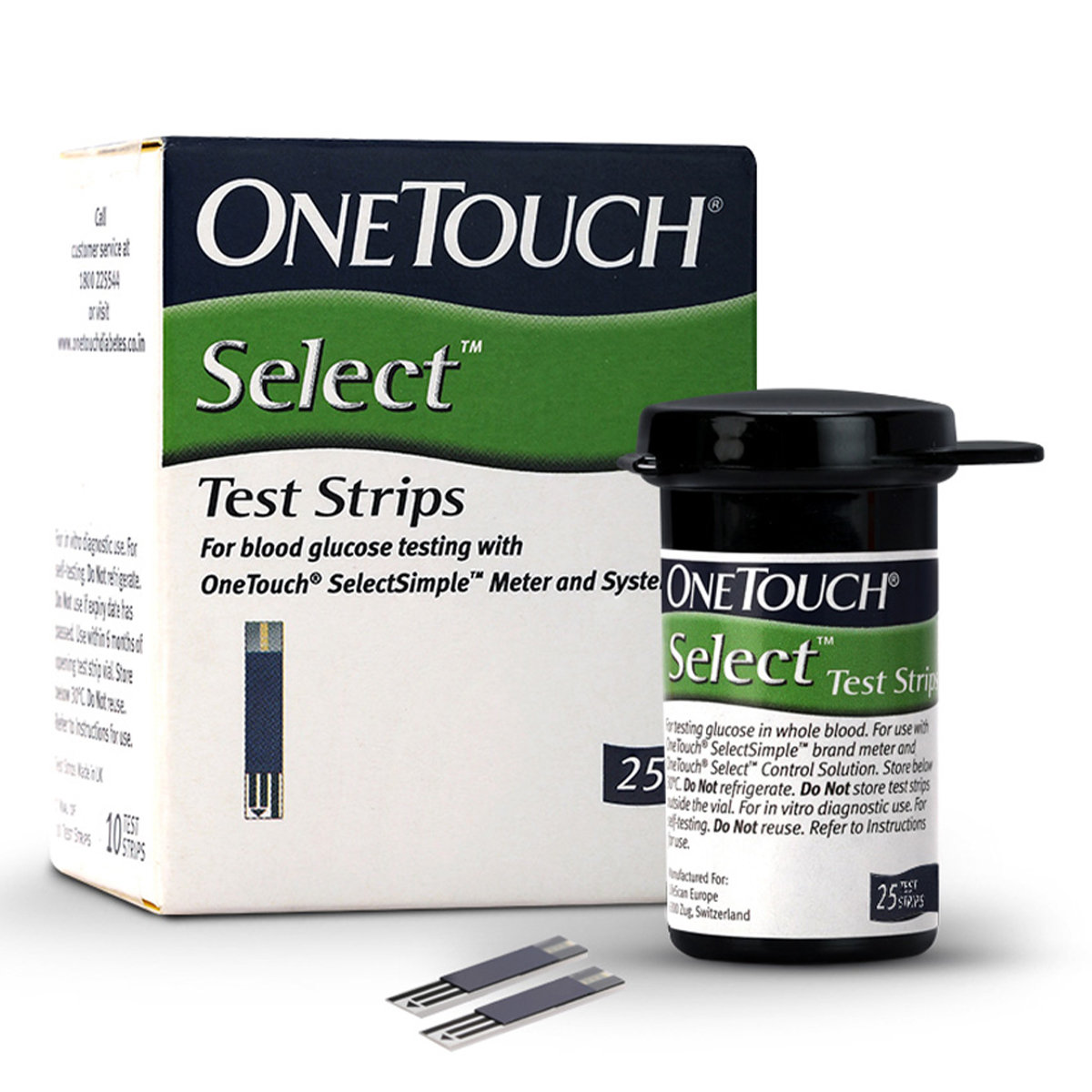
OneTouch Select Test Strips, 25 Count
₹629.80
MRP ₹656
4% off
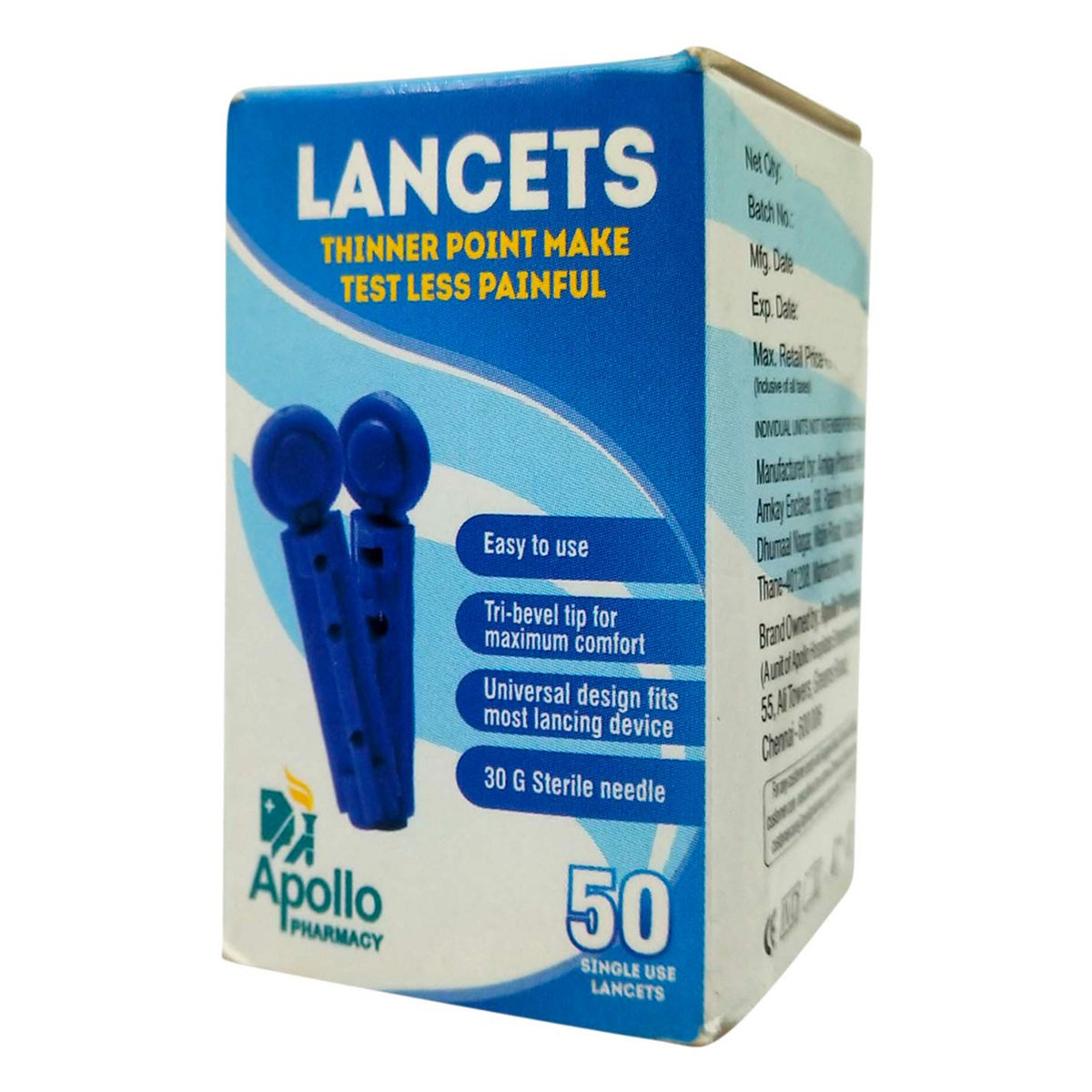
Apollo Pharmacy Lancets, 50 Count
₹126.50
MRP ₹140.50
10% off

OneTouch Ultra Test Strips, 50 Count
₹1286.10
MRP ₹1354.50
5% off
Buy glucometer strips online at Apollo Pharmacy
Apollo Pharmacy is India’s most trusted and reliable online pharmacy that delivers authentic medicines to its customers and offers the fastest home delivery of healthcare essentials. Choose the most genuine and authentic glucometers and strips online on Apollo Pharmacy and get an accurate reading of your blood glucose level within minutes.
Blood glucose monitoring - overview
Blood sugar testing is important for managing and controlling hypoglycemia or diabetes. Understanding your blood sugar level can alert you when your levels are outside the target range. This will help avoid an emergency. You should consider monitoring your blood glucose readings at different intervals before and after eating. This will help your doctor understand how exercise, food, and medicine is affecting your glucose levels.
Get your sugar levels tested at the comfort of your home with a blood sugar measurement device and glucometer strips available online at Apollo Pharmacy or the Apollo 24|7 app. Choose from a variety of brands like Accu-Chek, Apollo Pharmacy, OneTouch, FreeStyle, Dr. Morepen and more.
Types of glucometers
There are three different types of glucometers:
Invasive monitoring is a process that includes finger pricks with a lancet, a small needle that is used to put droplets of blood on a test strip. The next step is to place the strip in a meter that displays the blood glucose levels.
Non-Invasive: this technique is used for the determination of glucose levels without taking the blood sample.
A continuous glucose monitor is a medical device that is used for people with type 1 or type 2 diabetes in order to manage their blood glucose levels.
A continuous glucose monitor is a medical device that is used for people with type 1 or type 2 diabetes in order to manage their blood glucose levels.
How to measure blood sugar levels
Monitoring your blood glucose is a convenient process and can be done anywhere. A blood glucose monitor shows results in less than a minute. Following a routine, while doing it, can help prevent infection, give precise results, and manage your blood sugar levels well.
Steps to successfully monitor blood sugar level through the invasive glucometer:
Always keep your glucose monitoring supplies with you. This means keeping the lancets, alcohol swabs, and testing strips handy at all times.
Ensure that your strips are not expired. Outdated strips cannot guarantee accurate results.
Store the test strips away from moisture and direct sunlight. One of the best ways is to store them at a cool temperature.
Get your blood glucose level reports checked regularly.
To avoid infection, never share your glucose monitoring equipment with anyone else. Dispose of the needle, lancet, and strip after every use.
The doctor may suggest checking your glucose levels when you’re fasting. They may also recommend doing so before and after your meals or before your bedtime. Generally, the glucose reading should be between 80 to 130 milligrams/decilitre (mg/dl) and below 180 mg/dl after meals.
Are glucometers accurate?
Yes. Most of the glucometers let you know the accurate results. Just to be double sure, you can also compare the results with the machine available in the hospital by seeking permission from your doctor. You can log your blood sugar reading each time you test it and keep a track of it. Your doctor may get a proper idea about it and will be able to check your blood sugar levels accordingly. It may also help the doctor to understand the causes behind it.
Factors affecting your blood sugar levels
One of the significant aspects of the diagnostic procedures is to monitor your blood sugar levels. Several factors may affect your blood sugar levels, some of them are:
Meal timings
Hormone levels
Infections or illnesses
Medication
Speak to a doctor if you have any queries related to blood sugar monitoring. If your blood sugar levels fluctuate every day, then there could be something not good with your glucometer or some discrepancy in the process you are following.
When should you use a glucometer?
If you have conditions like diabetes and hypoglycemia, you should regularly test your blood glucose levels with a glucometer. Your blood sugar levels may be affected by pregnancy largely, and this may result in gestational diabetes. You and your doctor need to make a plan to assess the reason behind abnormal spikes and dips in your blood sugar. Talk to your physician to understand the risk of diabetes, hypoglycaemia, and other endocrine issues that may be the reason for too high or too low blood sugar.
How to choose the right glucometer?
Measuring your blood glucose levels is a part of healthy diabetes maintenance & dietary routine. Although the idea of collecting the blood sample may be a bit uncomfortable, the modern spring-loaded lancet monitors make the process painless and simple. Buy a glucometer at the best price from the leading brands on Apollo Pharmacy and the Apollo 24|7 app.
Frequently asked questions
The amount of sugar that is present in your body is the body’s blood glucose level. Glucose comes from the food we consume and is our body’s main source of energy. Diabetes patients have a surplus of blood sugar levels in their bodies.
The cells in our body use glucose to get energy for doing their respective tasks, so it is important to check out the amount of glucose present in the body. High or low body sugar could both be fatal for the human body.
Generally, the glucose levels in diabetes range from 80 to 130 milligrams/decilitre before eating and are less than 180 milligrams/decilitre after a meal.
If your blood glucose level is low, have something rich in sugar to bring your blood sugar to normal levels.
Keeping a check on your blood sugar levels regularly helps you manage diabetes efficiently. Take the readings at different intervals before and after a meal. Doing so will give you a clear idea of the cause behind the spikes and dips in your blood glucose levels. Accumulate all of your data and discuss it with your doctor whenever you go for a consultation.
The difference in the reading taken by a glucometer and tested through the lab is usually 15-20%.
You should check your blood glucose level during fasting, before and after lunch, and before and after dinner.
















